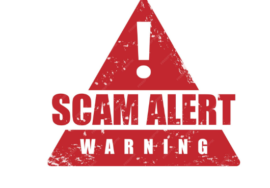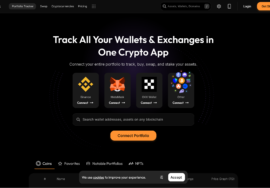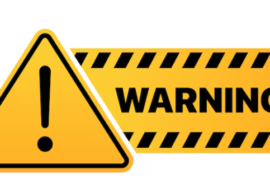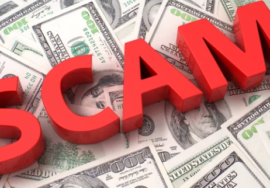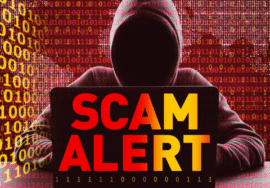
7 Brutal Red Flags About Scalatrading.com That Demand Your Attention
7 Brutal Red Flags About Scalatrading.com That Demand Your Attention
1. Opaque Identity & Hidden OwnershipOne of the first problems with Scalatrading is that its ownership and corporate structure are murky. A credible financial platform should clearly display its company name, registration number, registered address, and regulatory body. Scalatrading.com fails to transparently present these basics. When you dig through broker review directories, “Scalatrade” often appears linked with binary options brokers, not a regulated forex or CFD operator. Some reviews treat it as a binary options brand, not a full broker. Because it hides who operates it, users lack the ability to verify accountability or legal recourse.
2. Association with Known Scam Cases
Forums report that “ScalaTrade / Scalatrading / Scala.Trade” has been involved in scam allegations. In one Forex Peace Army thread, a user said that after transferring funds they lost all further communication — withdrawal requests were ignored, emails unanswered, and promises evaporated. That pattern—easy deposit, disappearance on withdrawal—is typical in broker scams. Also, someone claimed their account was migrated from another broker “OptionRally” to ScalaTrade under suspicious terms, with no oversight. These historical complaints raise serious questions about Scalatrading’s integrity.
3. Binary Options Marketing Under the Guise of Full Broker
Some marketing pages treat Scalatrading as a binary options provider offering services like “LiveTrader” platforms, high/low options, and one-touch trades. The product list often includes typical binary option tools rather than leveraged forex or CFD instruments. That suggests it may not be a full broker offering real market exposure, but a platform operating inside the binary-options niche, which many regulators have restricted or banned retail access to. When a platform presents itself ambiguously (broker + binary copy + trading signals), that ambiguity often favors the operator, not the user.
4. Aggressive Bonus & Signal Copy Schemes
Scalatrading’s promotional claims include high bonus offers, “copy option” or “follow trades” features allowing you to replicate “successful” traders’ deals, and insurance or “safety net” percentages. While those sound attractive, in practice such schemes often disguise hidden requirements. Bonuses typically come with conditions like very large trading volume before withdrawal allowed; copy-trading may carry slippage or latency disadvantage; “insurance” often only returns a small percentage under narrow conditions. The combination of copy systems and bonus systems has been abused by fraudulent platforms historically to lock-in user capital.
5. Poor or No Regulatory Disclosure & Licensing Claims Unverified
I found no credible evidence that Scalatrading is licensed by any major regulator (such as FCA, ASIC, CySEC). Some review sites claim it is regulated, but those claims are unsubstantiated—they do not point to registration numbers or searchable entries in regulator databases. In known scam broker reviews, false regulation claims are common: listing a regulator name without legitimacy. Because regulation is the backbone of accountability, the lack of verifiable licensing is a major red flag.
6. Withdrawal Delays, Communication Blackouts & “Verification” Excuses
The most common complaint in user forums about Scalatrading is that withdrawal requests are delayed indefinitely or never processed. Once traders seek to withdraw funds or profits, communication often stops, or they are bombarded with requests for more documents, KYC reconfirmation, or asked to sign additional forms under opaque terms. These “verification” requirements are often positioned as safety checks, but in many cases they serve as stalling tactics to discourage or deny withdrawals. No credible broker treats withdrawals as a burdensome process.
7. Pattern of Silence After Deposit — Disappearing Platform Risk
Several former users report that after deposit, support contacts vanish, websites change, or domain names shift. In some cases, the brand name “ScalaTrade” appears to change or rebrand, likely to escape complaint momentum. This “vanishing act” is a classic method used by fraudulent operations once they’ve collected funds. The fact that many users can’t get replies, that terms shift, and that the platform becomes inaccessible are all signs of a business model built on capturing funds, not serving clients.
Conclusion — The Hard Verdict on Scalatrading.com
Scalatrading.com presents itself in a way that is attractive on the surface—copy trading, bonuses, signals, trading platform marketing. But when you peel back the layers, the structure is fragile and alarmingly opaque. The absence of transparent licensing, track record, ownership, and independent audit makes trust a leap of faith. The user reports of withdrawal failures, communication blackouts, legacy complaints connecting it to other binary brokers, and the possibility of sudden disappearance all point to a high-risk scheme rather than a reliable broker.
If you are considering using Scalatrading, treat it as an experiment — not a partner. Deposit only money you are willing to lose. Try a small withdrawal immediately. Document all communications. Demand proof of segregated client funds, verified regulator registration, audit reports, and a permanent, public terms & conditions page that cannot change after deposit. If at any moment the operator refuses to provide concrete, verifiable documentation, that is your cancellation signal.
In trading, your broker should operate in daylight, not shadows. Scalatrading.com currently seems built around shadows—hidden ownership, unverifiable claims, disappearing support. That is not the environment of a legitimate broker; it is the structure of a trap. Use extreme caution, and unless it can prove its legitimacy beyond doubt, consider avoiding it altogether.


